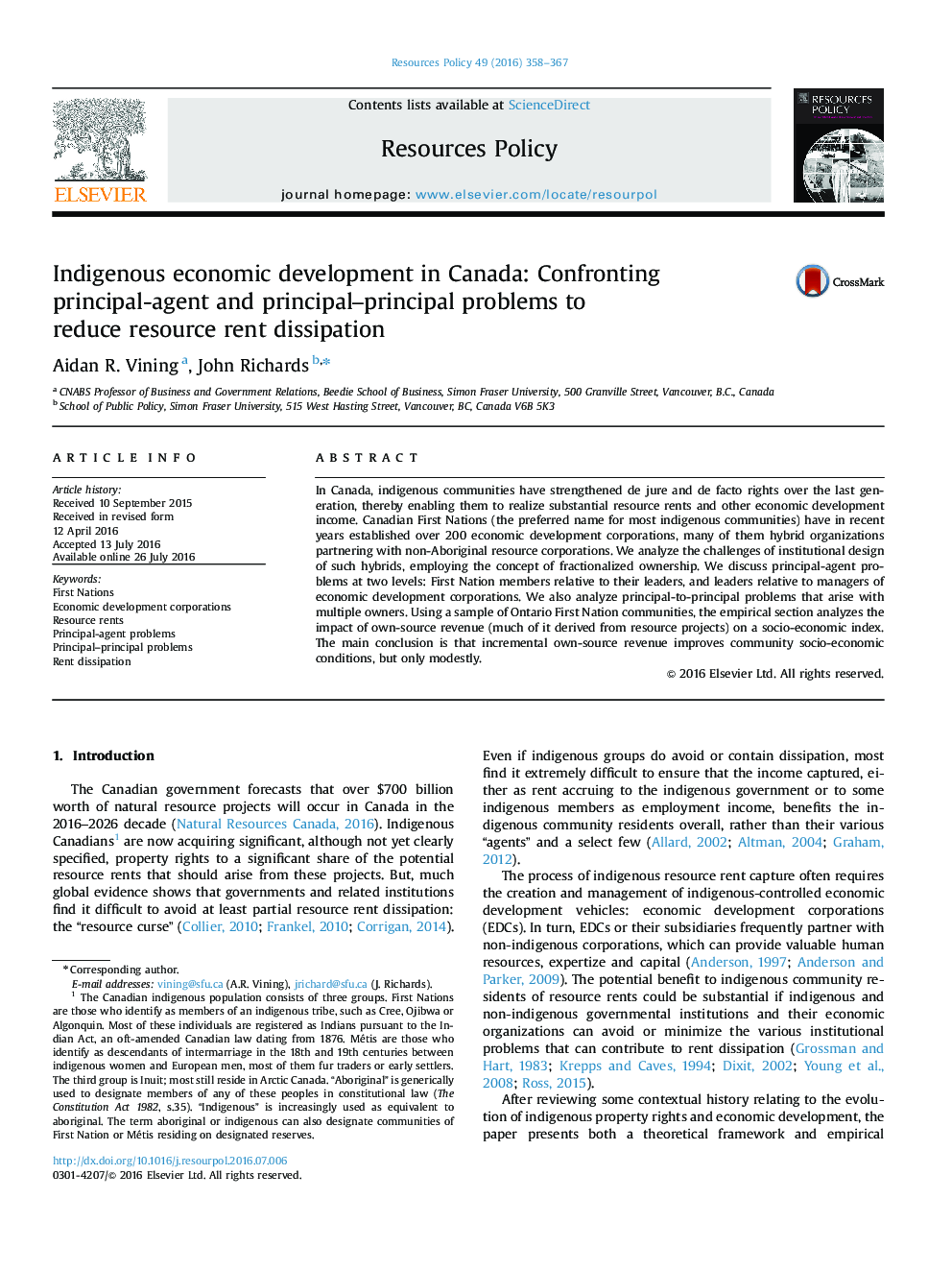| Article ID | Journal | Published Year | Pages | File Type |
|---|---|---|---|---|
| 7387753 | Resources Policy | 2016 | 10 Pages |
Abstract
In Canada, indigenous communities have strengthened de jure and de facto rights over the last generation, thereby enabling them to realize substantial resource rents and other economic development income. Canadian First Nations (the preferred name for most indigenous communities) have in recent years established over 200 economic development corporations, many of them hybrid organizations partnering with non-Aboriginal resource corporations. We analyze the challenges of institutional design of such hybrids, employing the concept of fractionalized ownership. We discuss principal-agent problems at two levels: First Nation members relative to their leaders, and leaders relative to managers of economic development corporations. We also analyze principal-to-principal problems that arise with multiple owners. Using a sample of Ontario First Nation communities, the empirical section analyzes the impact of own-source revenue (much of it derived from resource projects) on a socio-economic index. The main conclusion is that incremental own-source revenue improves community socio-economic conditions, but only modestly.
Related Topics
Physical Sciences and Engineering
Earth and Planetary Sciences
Economic Geology
Authors
Aidan R. Vining, John Richards,
